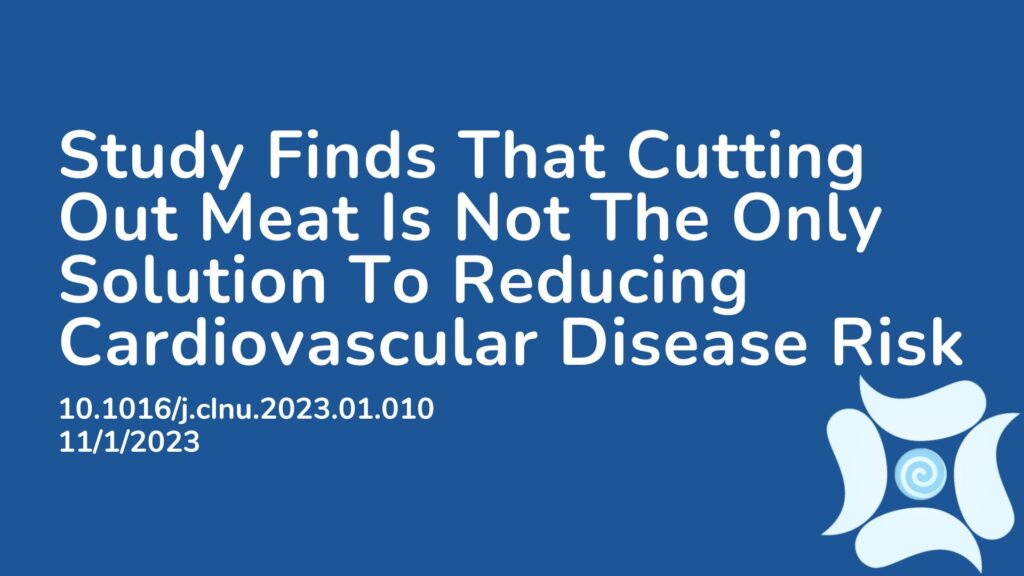Summary:
Given there are extremely healthy vegetarian diets, as well as nutrient poor vegetarian diets based on processed meat replacements, it’s important to elucidate whether it’s a vegetarian diet itself that reduces someone’s likelihood of developing cardiovascular disease. The vegetarian diet is commonly referred to as a healthier diet, however this may not always be the case. This study compared the cardiovascular risk assigned to vegetarian diets that meet nutritional guidelines with vegetarian diets that do not, as well as both for diets that include red meat. 391,124 participants were included in the study and were followed for over 10 years. The results showed that regardless of whether someone’s diet included meat or not, the lowest risk of cardiovascular disease was associated with diets that meet nutritional guidelines, such as meeting overall protein, fibre and micronutrient requirements. Vegetarian and non-vegetarian diets that consumed more processed and less nutritious food had a higher risk of cardiovascular disease.
Abstract:
Background: Vegetarian diets are heterogeneous; therefore, the health benefits may not be the same for all vegetarians. This study aimed to compare the cardiovascular risk associated with vegetarian diets that meet existing health guidelines with those that do not, as well as diets that include red meat. Methods: 391,124 participants (55.5% women) from UK Biobank prospective population-based study were included. Using data from a food frequency questionnaire, participants were categorised into Lacto-vegetarian or meat-eaters. Then, both groups were dichotomised into a healthier and less healthy group using an unweighted score based on current UK guidelines. Ischemic heart disease (IHD) and myocardial infarction (MI) incidence – both separately and as a composite of major adverse cardiovascular events (MACE) – were the outcomes included. Associations between types of diets and health outcomes were investigated using Cox proportional hazard models adjusted for confounder factors. Results: After a median follow-up of 10.4 years, there were 40,048 MACE. When the analyses were adjusted for prevalent morbidity and lifestyle factors, people who followed healthier vegetarian and meat-eater diets had 18% (95% CI: 0.73 to 0.92) and 5% (95% CI: 0.93 to 0.97) lower risk of MACE than less healthy meat-eaters. Similar patterns were identified for the individual outcomes included, with the strongest association observed for MI among individuals in the same healthier categories. None of these associations was significant for less healthy vegetarian diets. Conclusions: Vegetarian diets are heterogeneous and the cardiovascular risk varied accordingly. Future studies should consider the overall dietary patterns of vegetarians rather than just based on meat consumption. Guidelines advocating a plant-based diet need to stress the importance of overall diet quality in addition to the reduction of meat.
Article Publication Date: 11/1/2023
DOI: 10.1016/j.clnu.2023.01.010




